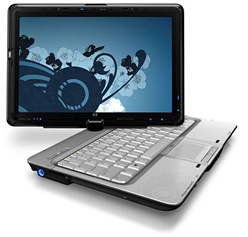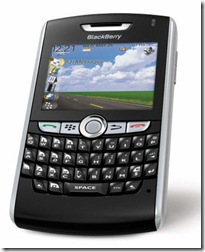The other day, I was sitting on the couch watching TV and juggling several nearly identical-looking devices – a cordless landline phone, a cable/TV remote, a Blu-ray remote, and a PDA phone. As I sat there, trying to change channels with my phone and answer the remote, I wondered whatever became of convergence.
For instance, why has no one invented a cordless landline with an IR radio? Or a multi-device remote with a built-in phone? I’d buy a combo cordless phone/multi-remote in a heartbeat.
Come to think of it, why don’t a lot of things do more, especially when they have the computing capability? Here are a few things I’d like to see improved/invented fast:
A cordless smartphone. I know landline connections are decreasing, but there are still millions who would jump at a base-station (maybe with a built-in modem and router) that came with cordless phones that had wi-fi-enabled iTouch-like capabilities.
A 21st century clock radio. I don’t need a clock radio anymore – my PDA phone, which charges next to my bed, tells time, sounds alarms, and plays music and radio just fine. But, if someone invented something “smarter” with a screen, email/web access, wi-fi, streaming media, and a landline phone, I’d buy it tomorrow.
Video books. I love the way ebooks turn into audio books at the press of a button. Now give me video books, depicting scenes from the book, when I press a button. (Think how much more interesting textbooks would become…)
A smarter car. Cars can call for help, tune themselves, and track GPS data automatically, so why can’t they download/read my email aloud, recommend stops I should make based on my to-do list, make their own service appointments, register themselves, talk to Napster, and download trip data to my desktop automatically?
More barcode-style scanning technologies. At my supermarket, I can walk around with a device that scans the UPCs off products I put in my cart, allowing me to avoid check out lines. Cool. Now make it even easier, and let me scan using my phone’s camera. And, coordinate it with my grocery list, so I know if I’ve forgotten anything. Even better, integrate it with inventories of my cabinets and refrigerator.
Smart wallet. I carry five cards in my wallet: Driver’s license, insurance card, Amex, debit card, and security key card. (Sometimes I have a Metro SmartTrip card, too.) All of these could easily merge into a single, programmable card, or, even better, encrypted data that sits on my PDA phone.
Web tablet reader. The Crunchpad seems kaput – and the Apple Tablet may have been delayed again – but with the growing popularity of ebook readers and smartphones, how long will it be before someone brings out a magazine-sized multi-purpose device for reading, surfing, notetaking, and basic PIM functions?
Am I the only one who needs these devices?


 He also points out that magazines are different from both time-driven news stories and evergreen music files in that they have a timeliness, but don't last forever.
He also points out that magazines are different from both time-driven news stories and evergreen music files in that they have a timeliness, but don't last forever. 






